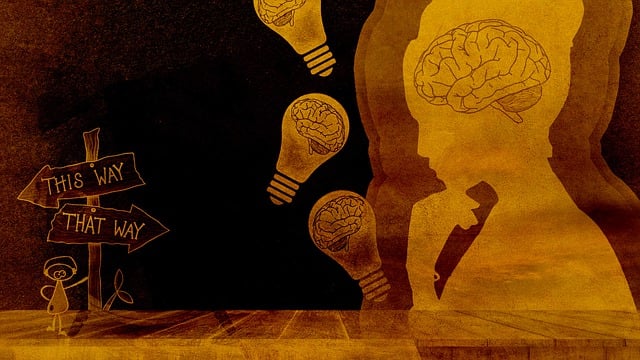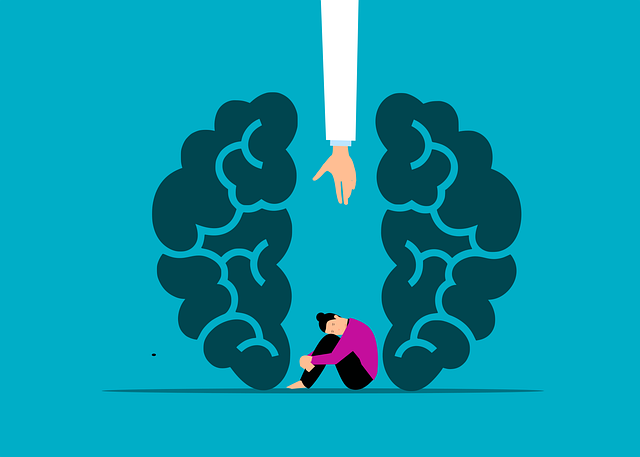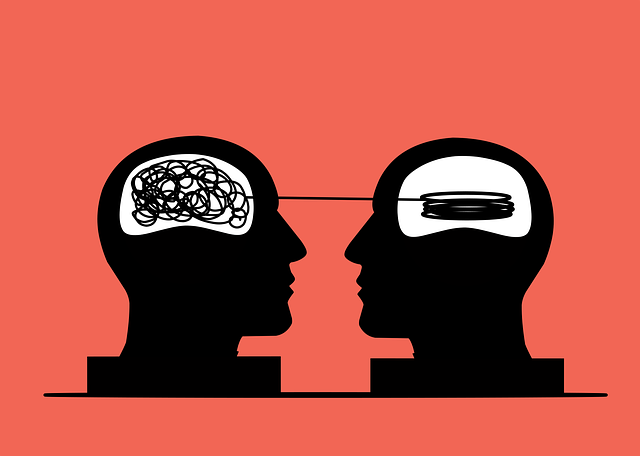Codependency, marked by excessive reliance on others for emotional support, leads to low self-esteem and exacerbates mental health issues like anxiety and depression. Therapy focuses on building self-esteem, teaching stress management, enhancing mood regulation skills, and fostering a stronger sense of self. Social Skills Training, incorporating mindfulness meditation and role-playing, is key, helping individuals become more aware of their thoughts and emotions in social settings, and effectively communicate needs. Building healthy relationships through emotional intelligence and compassion cultivation offers long-term benefits, improving well-being and preventing relapses. Regular check-ins, active listening, self-care, and mindfulness techniques are crucial for maintaining robust support networks that promote resilience and enhance life quality.
Social skills training is a powerful tool in the realm of mental health support, especially for those grappling with codependency. This article explores the intricate connection between social interactions and mental well-being, focusing on codependency as a common yet complex condition. We delve into understanding its symptoms, the impact on individuals’ lives, and how targeted therapy can break free from unhealthy patterns. Through practical techniques and strategies, it uncovers effective ways to enhance social skills, fostering healthier relationships and offering lasting benefits for those seeking therapy for codependency.
- Understanding Codependency: Symptoms and Impact on Mental Health
- The Role of Social Skills Training in Codependency Therapy
- Techniques and Exercises for Enhancing Social Interaction
- Building Healthy Relationships: Long-term Benefits and Maintenance Strategies
Understanding Codependency: Symptoms and Impact on Mental Health

Codependency is a complex relationship dynamic where one person becomes overly dependent on another for emotional validation and support. Those affected often struggle with low self-esteem, making them highly susceptible to the approval and attention of others. In the context of mental health conditions, codependency can exacerbate symptoms such as anxiety and depression. Individuals may find themselves unable to set healthy boundaries, leading to an imbalanced relationship that contributes to elevated stress levels and poor mood management.
Symptoms of codependency include a fear of abandonment, difficulty making decisions without others’ input, and a constant need for reassurance. This behavior often results in sacrificing one’s own needs and desires to please others, impacting overall mental well-being. Therapy for codependency focuses on self-esteem improvement by helping individuals recognize their worth and develop healthy coping mechanisms. Through therapy, individuals can learn effective stress management techniques, improve mood regulation skills, and build a stronger sense of self.
The Role of Social Skills Training in Codependency Therapy

Social Skills Training plays a pivotal role in the context of therapy for codependency. By focusing on developing effective communication strategies and enhancing self-awareness exercises, individuals can break free from unhealthy patterns and foster healthier relationships. Codependency often stems from an imbalanced dynamic where one person becomes overly reliant on others for validation, leading to poor boundaries and a lack of independent identity. Through structured programs that incorporate social skills development, clients learn to recognize these dynamics and implement healthy coping mechanisms.
Mental wellness coaching programs designed for codependency therapy offer a safe space to practice new communication strategies, ensuring individuals feel empowered to express their needs and set personal boundaries. These programs encourage self-reflection, enabling participants to understand their roles in relationships and make positive changes towards improved mental wellness. By combining theoretical knowledge with practical exercises, social skills training becomes a powerful tool for transforming lives and fostering lasting recovery.
Techniques and Exercises for Enhancing Social Interaction

Social skills training is an integral part of therapy for codependency, focusing on techniques and exercises designed to enhance social interaction. Mindfulness meditation is a powerful tool that helps individuals become more aware of their thoughts and emotions in social settings, fostering better communication and understanding with others. By promoting positive thinking, this practice allows people to navigate social situations with increased confidence and self-acceptance.
Additionally, role-playing scenarios are often employed to simulate real-life interactions, providing a safe space for practicing new skills. These exercises encourage participants to step out of their comfort zones, learn from feedback, and refine their ability to express needs, set boundaries, and engage in meaningful conversations. In the context of mental health policy analysis and advocacy, such training empowers individuals not only to improve their personal relationships but also to contribute positively to broader social networks and communities.
Building Healthy Relationships: Long-term Benefits and Maintenance Strategies

Building healthy relationships is a cornerstone of recovery for many mental health conditions, including codependency. Therapy for codependency often emphasizes the importance of forming and maintaining meaningful connections, which have long-term benefits that extend beyond the therapeutic setting. By cultivating emotional intelligence and compassion cultivation practices, individuals learn to communicate effectively, set boundaries, and regulate their moods in relationships. This not only enhances overall well-being but also provides a support system crucial for managing symptoms and preventing relapses.
To sustain these healthy relationships, it’s essential to implement maintenance strategies such as regular check-ins with loved ones, active listening during interactions, and practicing self-care to avoid burnout. Additionally, learning mindfulness techniques can help individuals stay present in their connections, fostering deeper understanding and empathy. These efforts collectively contribute to a robust support network that promotes resilience and enhances the quality of life for those managing mental health conditions like codependency.
Social skills training is a powerful tool in the therapy for codependency, offering individuals a chance to rebuild and strengthen relationships. By learning effective communication techniques and developing healthy boundaries, those struggling with codependency can enhance their social interactions and foster meaningful connections. This comprehensive approach not only benefits individual recovery but also contributes to a more fulfilling and balanced life, emphasizing the long-term benefits of building healthy relationships.














